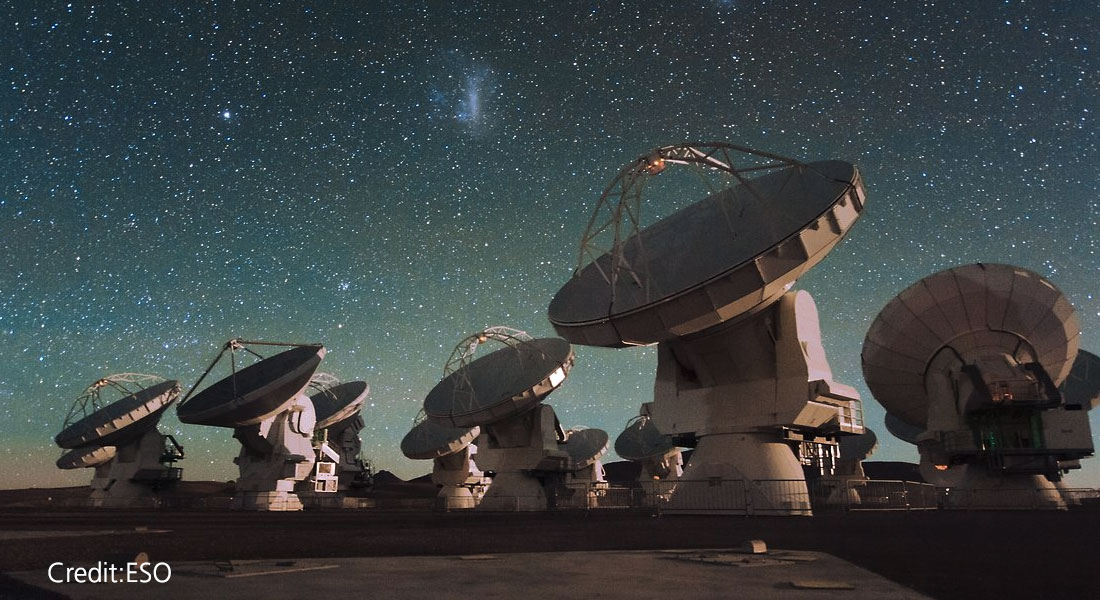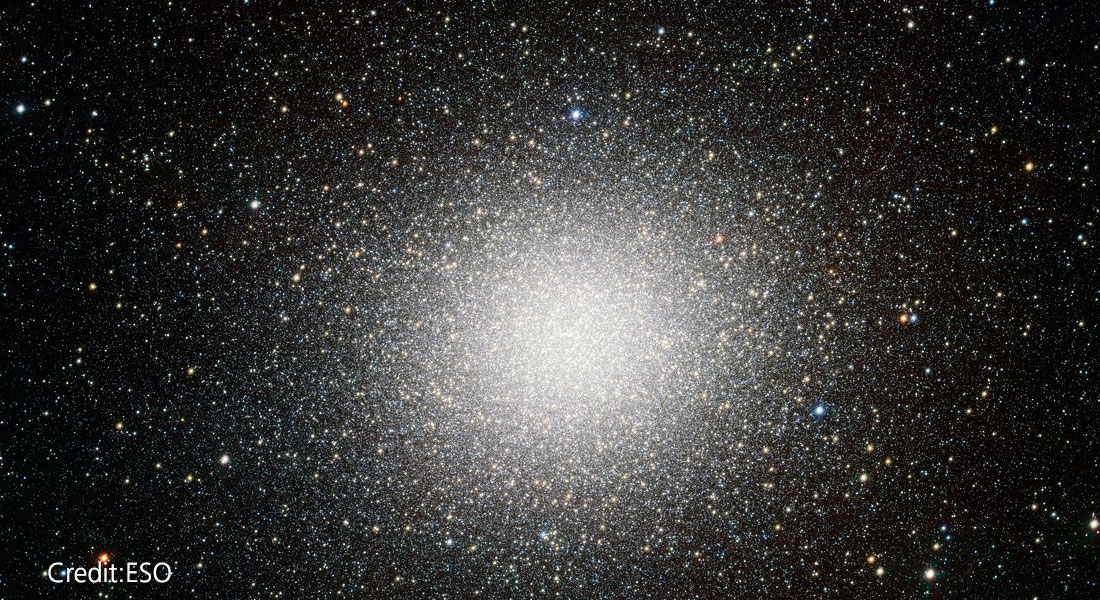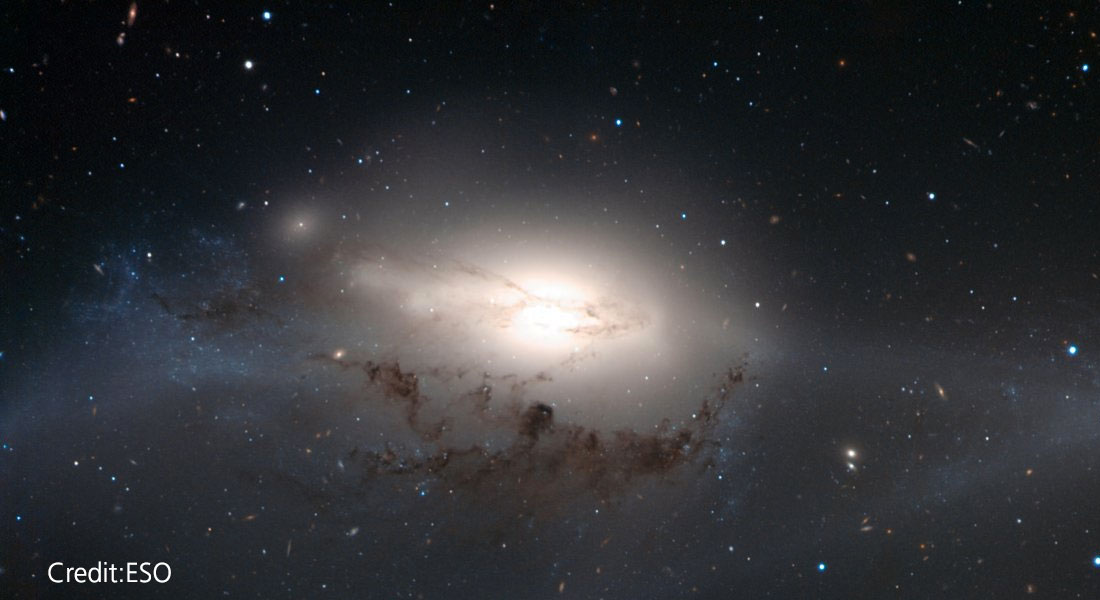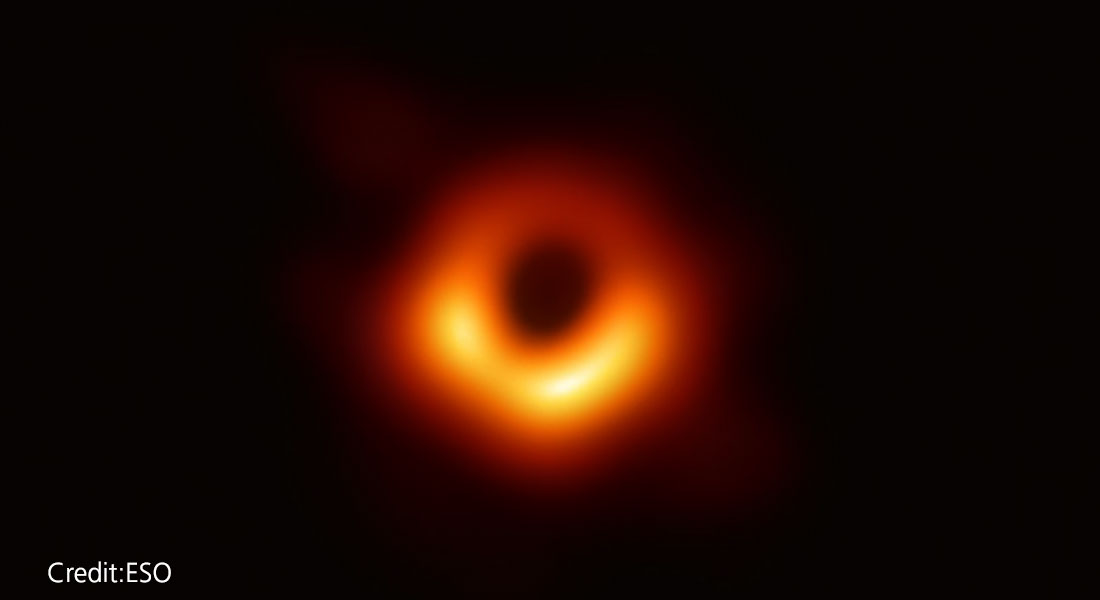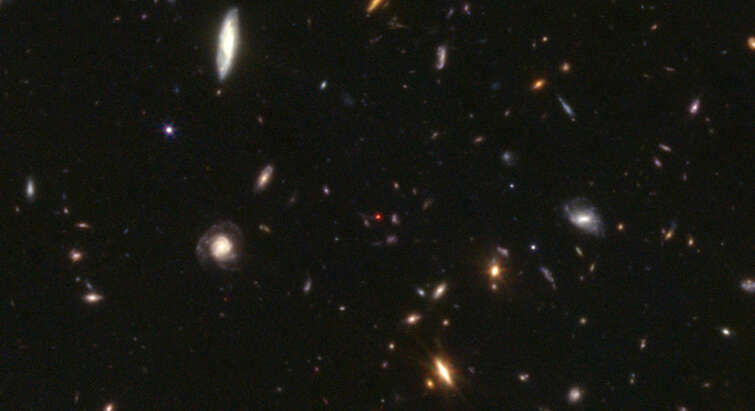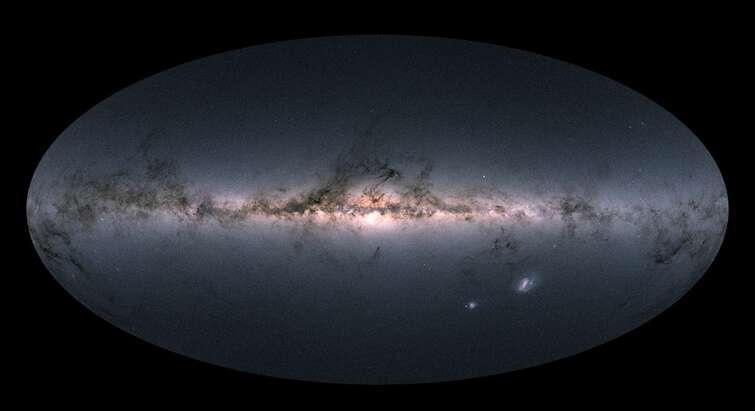
Astrophysics
A broad spectrum of astronomy and astrophysics is researched at the Niels Bohr Institute – everything from the visible Universe such as planets, stars and galaxies – to the invisible universe and the presence of dark energy and dark matter.
The NBI astrophysicists participate in many international projects and have access to modern telescopes and satellites via, e.g. Denmark’s membership of the European Southern Observatory (ESO) and the European Space Agency (ESA), and to state-of-the-art supercomputers.
There is a strong tradition for collaborating with skilled engineers and technician’s towards developing and building advanced new instruments for the exploration of space.
Astrophysics at NBI is administrational organized in three research sections with a broad range of interests.
There are close to 100 astrophysicists at the NBI, including 15 permanent faculty, non-permanent faculty, postdocs and PhD students. In addition, we have a number of affiliate professors and emeritus professors that contribute actively to our research.
Astrophysics is currently situated at three different locations. Astrophysics and Planetary Science is located at the Geological Museum, while the Dark and Dawn sections are located at the Vibenshuset. Furthermore, two research groups are hosted at the Niels Bohr International Academy. Astrophysics at NBI offer a comprehensive master's specialization with 10 astrophysics courses, covering all parts of modern physics attracting many Danish and international students, and supports the bachelor program in physics with 4 different astrophysics bachelor courses.
The Niels Bohr institute has many MSc and PhD students. The students are closely attached to the research groups and supervisor, and have many social activities for International and Danish students.
If you are interested in studying Astrophysics, consider looking at these pages:
Astrophysics applies the laws of physics to explain the birth, life and death of stars, planets, galaxies, nebulae and other objects in the universe.
Because astrophysics is a very broad subject, astrophysicists apply concepts and methods from many disciplines of physics, including classical mechanics, electromagnetism, statistical mechanics, thermodynamics, quantum mechanics, relativity, nuclear and particle physics, and atomic and molecular physics.
Planets
For centuries, people have wondered whether other stars have planets, and whether those planets might harbor life. Within the last few decades, it has become possible to make progress on these timeless questions. Exoplanetary science – the study of planets around other stars – is one of the newest and most rapidly growing branches of astrophysics.

For centuries, people have wondered whether other stars have planets, and whether those planets might harbor life. Within the last few decades, it has become possible to make progress on these timeless questions. Exploration of the planet Mars (our own and in strong collaboration with the meteorite group at the Geological museum) help reveal the past conditions for life on Mars. Exoplanetary science – the study of planets around other stars – is one of the newest and most rapidly growing branches of astrophysics. It help us understand the diversity of ways planets can form, why we have life on Earth, and eventually whether life exist on planets around other stars.
Stars
To understand the formation and evolution of stars is essential for understanding the evolution of the Universe as a whole. Astronomers approach these problems by observations at many wavelengths and by theoretical calculations.
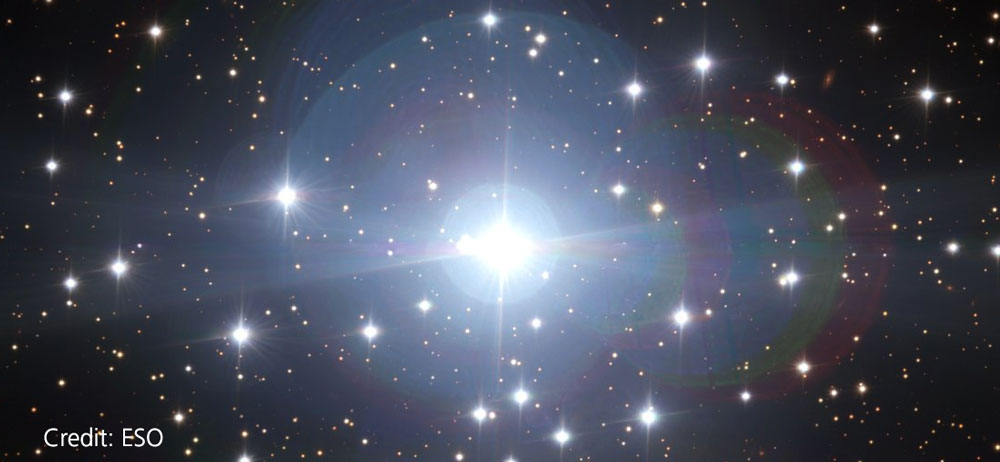
Star formation is closely coupled to planet formation, in ways that are still not well understood. The properties of the faintest and brightest stars determine the overall stellar energy output in a galaxy and is therefore coupled to the evolution of galaxies. Stars can also be used as probes of the gravitational effects of dark matter, and of extreme physics in conditions, which are unattainable in the lab.
Galaxies
A galaxy is a gravitationally bound entity, typically consisting of dark matter, gas, dust and stars. Galaxies are host to some of the most extreme processes in nature.
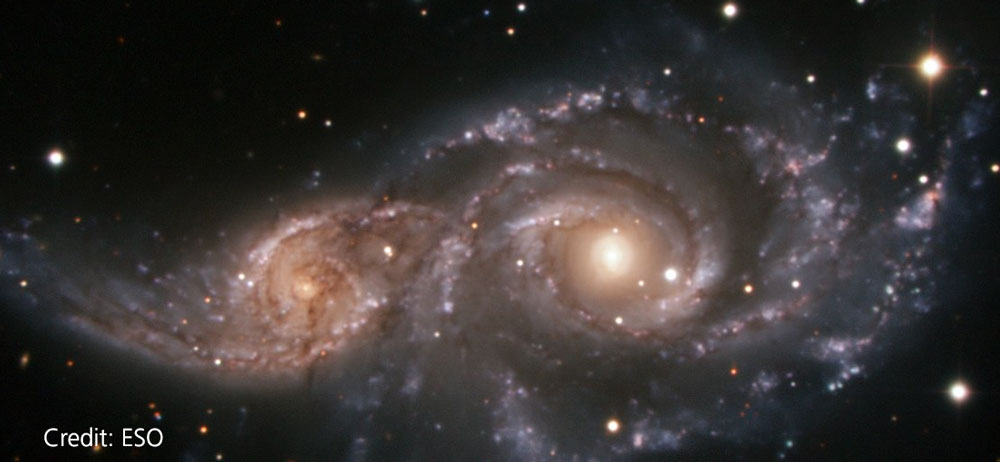
Galaxies populate the Universe, mainly residing in clusters and groups. There are thought to be over 100 billion galaxies in the observable Universe. The most well-known galaxy is our own Milky Way. Galaxies have changed the way they look and behave over the history of the universe – since they formed after the Big Bang until now.
Cosmology
Cosmology is aim at studying the origin and evolution of the universe, from the Big Bang to today and on into the future. It is the scientific study of the origin, evolution, and eventual fate of the universe.
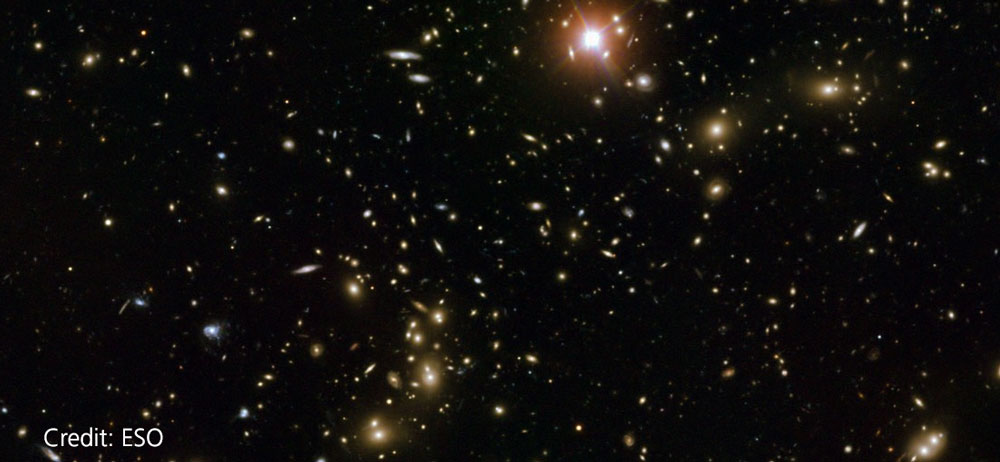
Physical cosmology is the scientific study of the universe's origin, its large-scale structures and dynamics, and its ultimate fate, as well as the laws of science that govern these areas. While other aspects astronomy deal with individual objects and phenomena or collections of objects, cosmology spans the entire universe from birth to death, with a wealth of mysteries at every stage.
High energy astrophysics
High-energy astrophysics studies the Universe at the extreme.

Black holes, neutron stars, exploding supernovae, and relativistically moving jets continually challenge our understanding of the behavior of matter at extreme densities and temperatures, high velocities, enormous magnetic fields, and strong gravity. Understanding these extreme environments is key to interpreting the bizarre energetic phenomena that occur in Active Galactic Nuclei, pulsars, supernovae, and gamma-ray bursts.
AstroNu
The Neutrino Astrophysics (AstroNu) group at NBI aims at unveiling the nature of fascinating weakly interacting elementary particles, such as the neutrino, and at using them as probes of the engine behind the most energetic transients in our Universe.
Exoplanets & Astrobiology
The first exoplanets, i.e. planets outside our own solar system, were discovered only a few decades ago. Today we know of thousands of them, and they post a challenge to the understanding of how planetary systems form. Our group participate in discovering and characterising some of the most interesting exoplanets. By modelling their spectra we will be able to calculate what they are made of. Eventually these models will reveal whether biological processes affects the atmosphere, as is the case on Earth. By performing biological experiments, we quantify how much different types of life will affect the observable spectra.
MARS
The Mars group at NBI is an experimental research group working with exploration of the Martian surface. The research is currently focused on the mineral composition of the Martian soil, rocks and particularly the airborne dust. An essential activity is the participation in experiments on Mars lander and rover missions for which we design and build various science instruments and experiments.
Theoretical Astrophysics Group
The Theoretical Astrophysics Group at NBI and the Niels Bohr International Academy span a broad variety of topics in the area of astrophysical fluid and magnetohydro dynamics. We are interested in understanding the physics of accretion flows around young stars and compact objects and their associated jets, the interstellar and intracluster media, and the early evolution of our solar system, as well as exoplanetary systems.
Young Stars
Using astronomical observations and sophisticated models we study how stars and planets are formed, what physics and chemistry occur during the early evolution of young stars and what the potentially determines whether Earth-like planets with life may be present elsewhere. The research is funded by the European Research Council (ERC).
Centre for ExoLife Sciences (CELS): CELS is a collaboration between three institutes at University of Copenhagen, the Niels Bohr Institute, the Department of Biology, and the Department of Chemistry. The research is focused on studies of the conditions on Earth, Mars, and exoplanets and how life affects the large-scale structure of their atmospheres. Visit the CELS homepage >>
DARK: DARK explores the farthest reaches of Space by observing cosmological 'beacons' such as supernoae and gamma ray-bursts. Cosmological research topics at DARK consist of dark matter, dark energy, black holes, high-energy astrophysics, galaxies and neutrinos. Visit the DARK homepage >>
DAWN: DAWN is dedicated to uncovering how and when the first galaxies, stars and Black holes were formed. DAWN is located in Copenhagen at the Niels Bohr Institute, University of Copenhagen, and at the National Space Institute of the Danish Technical University (DTU-Space). The center is dedicated to uncovering how and when the first galaxies, stars and black holed formed, through observations with the prime telescopes of the next decade (ALMA, JWST, Euclid, E-ELT, HST) as well as through theory and simulations. Visit the DAWN homepage >>
Astrophysics and Planetary Science section
Niels Bohr Building, Jagtvej 155B, 2 floor, 2200 København N.
Head: Jes Kristian Jørgensen, Professor
Phone: +45 35 32 41 86, Email: jeskj@nbi.ku.dk
Secretary: Zofia Kohring (kohring@nbi.ku.dk), Phone: +45 35 32 52 10
Julie Meier (juliemh@nbi.ku.dk), Phone: +45 35 33 43 96
The Cosmic Dawn section
Niels Bohr Building, Jagtvej 128, 2 floor, 2200 København N.
Head: Darach Watson, Professor
Phone: +45 24 80 38 25, Email: darach@nbi.ku.dk
Secretary: Helena Baungaard-Sørensen
Phone: +45 35 32 70 14, Email: Helena.baungaard@nbi.ku.dk
DARK section
Niels Bohr Building, Jagtvej 155B, 2. floor, 2200 København N.
Head: Marianne Vestergaard, Professor
Phone: +45 35 32 59 09, Email: mvester@nbi.ku.dk
Secretary: Zofia Kohring (kohring@nbi.ku.dk), Phone +45 35 32 52 10
Julie Meier (juliemh@nbi.ku.dk), Phone: +45 35 33 43 96
Staff
| Name | Title | Phone | |
|---|---|---|---|
| Search in Name | Search in Title | Search in Phone | |
| Allen, Natalie | Research Assistant | +4535335565 | |
| Andersen, Anja C. | Professor | +4535325892 | |
| Andersen, Michael Ingemann | Special Consultant | +4535325992 | |
| Arya, Aayush | PhD Fellow | +4535333499 | |
| Bacchini, Cecilia | Postdoc | +4535327125 | |
| Baker, William Michael | Postdoc | ||
| Balduin, Thorsten | Postdoc | ||
| Berlok, Thomas | Postdoc | +4535329383 | |
| Bonaventura, Nina | External Consultant | ||
| Brammer, Gabriel | Associate Professor | ||
| Cameron, Alex James | Postdoc | +4535336259 | |
| Campolmi, Irene | Research Assistant | ||
| Chen, Zuyi | Postdoc | +4535320617 | |
| Christensen, Lise Bech | Associate Professor | +4535320604 | |
| Clasen, Jacob Wang | External Consultant | +34619274750 | |
| Cold, Cecilie | External, Ph.d Student | +4535333613 | |
| Daza Valdebenito, Daniel Alejandro | PhD Fellow | +4535321145 | |
| Dropulic, Adriana Svetlana | Postdoc | +4535333619 | |
| Fabj, Gaia | PhD Fellow | +4535328883 | |
| Farías Hinojosa, Diego Andrés | Enrolled PhD Student | +4535322174 | |
| Ferreira Cores, Clara | PhD Fellow | +4535333271 | |
| Fynbo, Johan Peter Uldall | Professor | +4528755983 | |
| Gall, Christa | Special Consultant | +4535326076 | |
| Gelli, Viola | Postdoc | +4535328309 | |
| Gottumukkala, Rashmi | PhD Fellow | +4535321021 | |
| Grcic, Marcela | Research Assistant | +4535329560 | |
| Gressel, Oliver | No job title | +4535325228 | |
| Hajela, Aprajita | Postdoc | +4535323339 | |
| Hansen, Steen Harle | Professor | +4535325988 | |
| Haugbølle, Troels | Associate Professor | +4535321141 | |
| Heintz, Kasper Elm | Assistant Professor | ||
| Hendriks, Kai Sebastian Paul | Research Assistant | +4535329778 | |
| Hjorth, Jens | Professor | +4535325928 | |
| Holm, Julie Kiel | PhD Fellow | ||
| Høg, Erik | Associate Professor Emeritus | ||
| Ito, Kei | Guest Researcher | ||
| Jakobsen, Peter | Affiliate Professor | ||
| Jermann, Iris | Visiting PhD Student | ||
| Jin, Shuowen | External Postdoc | +4535331184 | |
| Jørgensen, Jes Kristian | Professor | +4535324186 | |
| Jørgensen, Uffe Gråe | Associate Professor | +4535325998 | |
| Kakiichi, Koki | Assistant Professor | +4535329769 | |
| Kinch, Kjartan Bergeron | External | +4535320512 | |
| Kirkeberg, Philip Jon Østergaard | PhD Fellow | ||
| Klausen, Rikke Stougaard | Student | ||
| Kokorev, Vasilii | External Consultant | +4535325205 | |
| Korhonen, Heidi Helena | External | +4535333425 | |
| Kreilgaard, Kimi Cardoso | PhD Fellow | ||
| Kumar, Gaurav Senthil | Guest Researcher | ||
| Küffmeier, Michael | Assistant Professor | ||
| Laursen, Peter | Special Consultant | +4530265969 | |
| Lawther, Daniel Peter | Guest Researcher | ||
| Lee, Minju | Guest Researcher | ||
| Lesniewska, Aleksandra Lidia | Guest Researcher | +4535329918 | |
| Li, Zihao | PhD Fellow | +4535334222 | |
| Ma, Guozhen | PhD Fellow | +4535329094 | |
| Madsen, Morten Bo | Associate Professor | +4535320515 | |
| Magdis, Georgios | Affiliate Associate Professor | ||
| Malesani, Daniele Bjørn | Academic Staff | ||
| Mason, Charlotte | Associate Professor - Promotion Programme | +4535334089 | |
| Matharu, Jasleen Kaur | Postdoc | +4535323554 | |
| Mc Partland, Conor John Ryan | Postdoc | +4535323772 | |
| Milvang-Jensen, Bo | External Consultant | ||
| Nielsen, Rasmus Damgaard | PhD Fellow | +4535323320 | |
| Nikolic, Ivan | Postdoc | +4535337409 | |
| Nikopoulos, Georgios Panagiotis | PhD Fellow | +4535337531 | |
| Nordlund, Åke | Professor Emeritus | +4535325968 | |
| Nordström, Birgitta | Associate Professor Emerita | +4530278982 | |
| Nørby, Freja Amalie | Guest Researcher | ||
| Oesch, Pascal | Associate Professor | +4535324387 | |
| Pearson, Sarah | Assistant Professor | +4535323870 | |
| Pedersen, Kristian | External | ||
| Pensabene, Antonio | Guest Researcher | ||
| Perotti, Giulia | Postdoc | +4535333285 | |
| Pessah, Martin Elias | Professor | +4535325312 | |
| Pollock, Clara Lucie | PhD Student | +4535331057 | |
| Prat Martí, Judit | Postdoc | +4535323955 | |
| Raimundo, Sandra | External Researcher | +4535331659 | |
| Raju, Aman Nadimpalli | PhD Fellow | +4535331193 | |
| Rangavar Langeroodi, Danial | Postdoc | +4535321761 | |
| Rasmussen, Per Kjærgaard | Associate Professor Emeritus | ||
| Reynolds, Tom | Research Assistant | +4535323411 | |
| Rowan, Connar | Postdoc | ||
| Saini, Pankaj | Postdoc | ||
| Samsing, Johan Georg Mulvad | Assistant Professor | +4535320370 | |
| Sarangi, Arka | Guest Researcher | +4535331348 | |
| Sedgewick, Aidan | Postdoc | ||
| Sharma, Rajeeb | Guest Researcher | ||
| Shuntov, Marko | Postdoc | +4535323224 | |
| Silverman, Maya Sophia | Postdoc | +4535327534 | |
| Sneppen, Albert Bjerregård | External, Ph.d Student | ||
| Strait, Victoria Bellinger | Postdoc | ||
| Symeonidou, Eftychia | Enrolled PhD Student | +4535327512 | |
| Sørensen, Anton Norup | Academic Research Staff | +4540499295 | |
| Tiede, Christopher William | Postdoc Marie Curie | +4535328569 | |
| Toft, Sune | Professor | +4535325908 | |
| Trani, Alessandro Alberto | Research Assistant | +4535328462 | |
| Tuhtan, Vito | PhD Fellow | ||
| Valentino, Francesco Maria | External Consultant | +4550157234 | |
| Vanitcharenthum, Patsrikasem | Guest Researcher | ||
| Verwohlt, Jo | Academic Research Staff | ||
| Vestergaard, Marianne | Professor | +4535325909 | |
| Vigna Gomez, Alejandro | Postdoc | +4535330813 | |
| Viuho, Joonas Kari Markku | Guest Researcher | ||
| Walsh, Gregory Vincent | Postdoc | +4535326638 | |
| Watson, Darach Jafar | Professor | +4535325994 | |
| Witstok, Joris | Postdoc | +4535324765 | |
| Wojtak, Radoslaw Jan | Associate Professor | ||
| Wu, Sirui | PhD Fellow | +4535322903 | |
| Xu, Yi | Postdoc | +4535327290 | |
| Zaidi, Shirin Gul | PhD Fellow | +4535323299 | |
| Zhu, Pengpei | Guest Researcher | ||
| Zwick, Lorenz | Postdoc Marie Curie | +4535329526 | |
| de Búrca, Liam Mads Eichstedlund | Guest Researcher |


